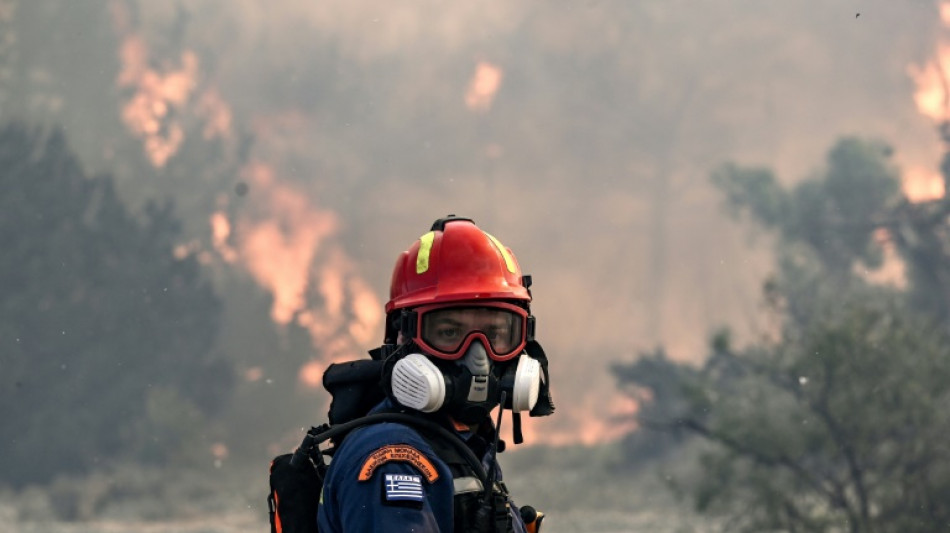
-
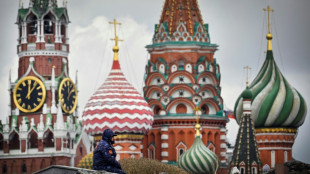 US envoy to visit Moscow as US pushes for ceasefire
US envoy to visit Moscow as US pushes for ceasefire
-
At least 24 killed in Kashmir attack on tourists: Indian police source

-
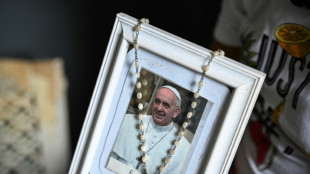 Philippine typhoon victims remember day Pope Francis brought hope
Philippine typhoon victims remember day Pope Francis brought hope
-
IMF slashes global growth outlook on impact of Trump tariffs
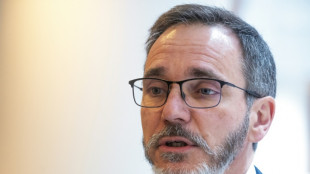
-
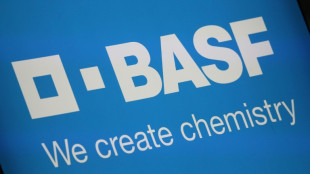 BASF exits Xinjiang ventures after Uyghur abuse reports
BASF exits Xinjiang ventures after Uyghur abuse reports
-
Nordics, Lithuania plan joint purchase of combat vehicles
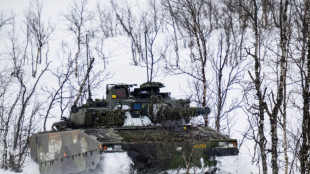
-
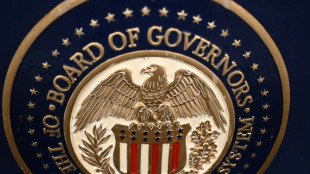 Gold hits record, stocks diverge as Trump fuels Fed fears
Gold hits record, stocks diverge as Trump fuels Fed fears
-
World could boost growth by reducing trade doubt: IMF chief economist
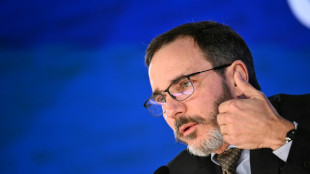
-
 IMF slashes global growth outlook on impact of US tariffs
IMF slashes global growth outlook on impact of US tariffs
-
IMF slashes China growth forecasts as trade war deepens
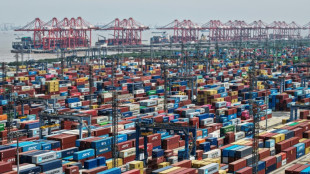
-
 Skipper Shanto leads Bangladesh fightback in Zimbabwe Test
Skipper Shanto leads Bangladesh fightback in Zimbabwe Test
-
US VP Vance says 'progress' in India trade talks

-
 Ex-England star Youngs to retire from rugby
Ex-England star Youngs to retire from rugby
-
Black Ferns star Woodman-Wickliffe returning for World Cup

-
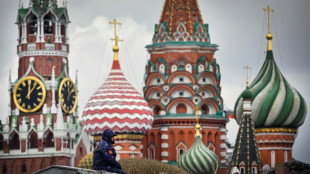 Kremlin warns against rushing Ukraine talks
Kremlin warns against rushing Ukraine talks
-
Mbappe aiming for Copa del Rey final return: Ancelotti
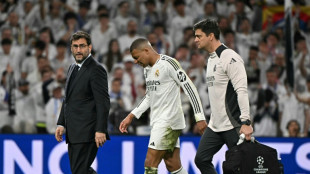
-
 US universities issue letter condemning Trump's 'political interference'
US universities issue letter condemning Trump's 'political interference'
-
Pope Francis's unfulfilled wish: declaring PNG's first saint
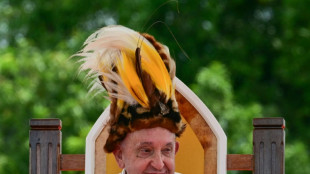
-
 Myanmar rebels prepare to hand key city back to junta, China says
Myanmar rebels prepare to hand key city back to junta, China says
-
Hamas team heads to Cairo for Gaza talks as Israel strikes kill 26
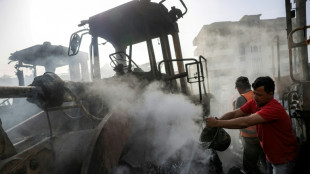
-
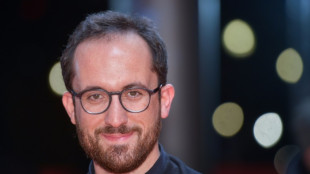 Pianist to perform London musical marathon
Pianist to perform London musical marathon
-
India's Bumrah, Mandhana win top Wisden cricket awards

-
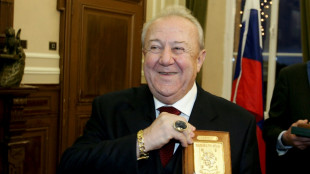 Zurab Tsereteli, whose monumental works won over Russian elites, dies aged 91
Zurab Tsereteli, whose monumental works won over Russian elites, dies aged 91
-
Roche says will invest $50 bn in US, as tariff war uncertainty swells
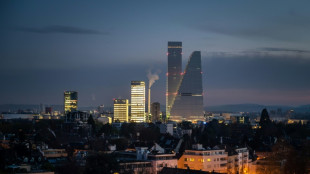
-
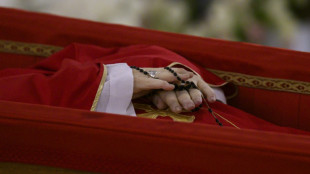 Pope Francis's funeral set for Saturday, world leaders expected
Pope Francis's funeral set for Saturday, world leaders expected
-
US official asserts Trump's agenda in tariff-hit Southeast Asia
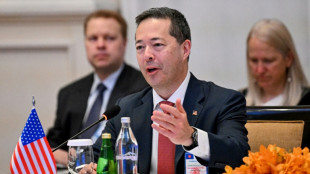
-
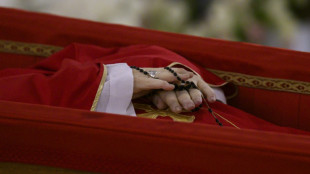 World leaders set to attend Francis's funeral as cardinals gather
World leaders set to attend Francis's funeral as cardinals gather
-
Gold hits record, stocks mixed as Trump fuels Fed fears
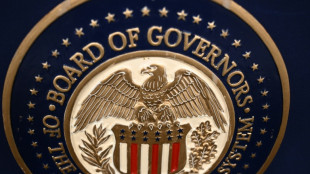
-
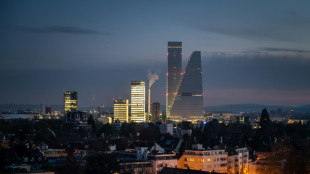 Roche says will invest $50 bn in US over next five years
Roche says will invest $50 bn in US over next five years
-
Fleeing Pakistan, Afghans rebuild from nothing
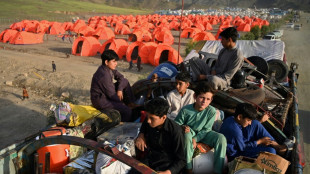
-
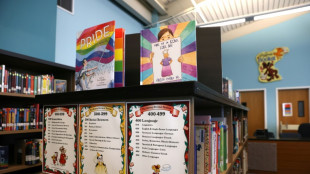 US Supreme Court to hear case against LGBTQ books in schools
US Supreme Court to hear case against LGBTQ books in schools
-
Pistons snap NBA playoff skid, vintage Leonard leads Clippers

-
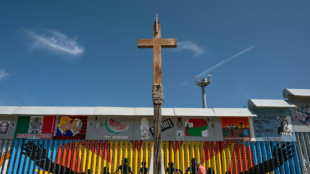 Migrants mourn pope who fought for their rights
Migrants mourn pope who fought for their rights
-
Duplantis kicks off Diamond League amid Johnson-led changing landscape

-
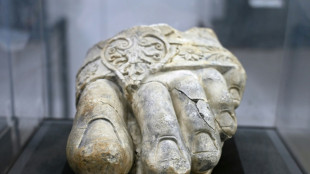 Taliban change tune towards Afghan heritage sites
Taliban change tune towards Afghan heritage sites
-
Kosovo's 'hidden Catholics' baptised as Pope Francis mourned
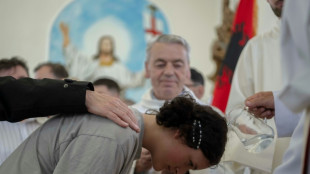
-
 Global warming is a security threat and armies must adapt: experts
Global warming is a security threat and armies must adapt: experts
-
Can Europe's richest family turn Paris into a city of football rivals?
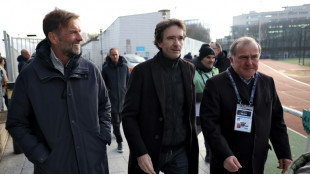
-
 Climate campaigners praise a cool pope
Climate campaigners praise a cool pope
-
As world mourns, cardinals prepare pope's funeral
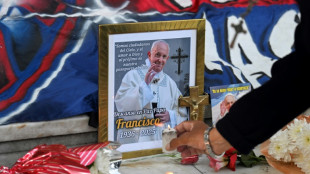
-
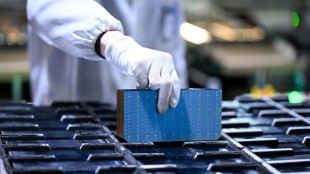 US to impose new duties on solar imports from Southeast Asia
US to impose new duties on solar imports from Southeast Asia
-
Draft NZ law seeks 'biological' definition of man, woman
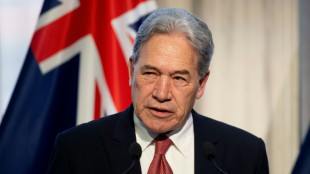
-
 Auto Shanghai to showcase electric competition at sector's new frontier
Auto Shanghai to showcase electric competition at sector's new frontier
-
Tentative tree planting 'decades overdue' in sweltering Athens

-
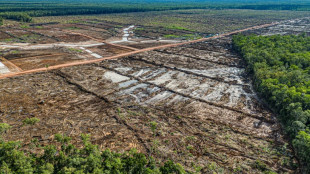 Indonesia food plan risks 'world's largest' deforestation
Indonesia food plan risks 'world's largest' deforestation
-
Gold hits record, stocks slip as Trump fuels Fed fears
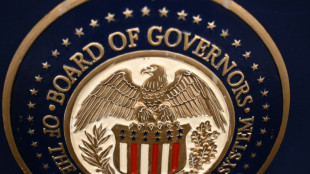
-
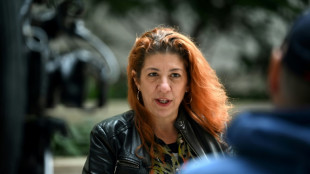 Trump helps enflame anti-LGBTQ feeling from Hungary to Romania
Trump helps enflame anti-LGBTQ feeling from Hungary to Romania
-
Woe is the pinata, a casualty of Trump trade war
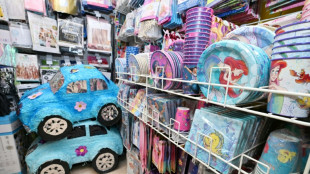
-
 'Like orphans': Argentina mourns loss of papal son
'Like orphans': Argentina mourns loss of papal son
-
Trump tariffs torch chances of meeting with China's Xi


Earth to warm up to 2.9C even with current climate pledges: UN
Countries' greenhouse gas-cutting pledges put Earth on track for warming far beyond key limits, potentially up to a catastrophic 2.9 degrees Celsius this century, the UN said Monday, warning "we are out of road".
The UN Environment Programme's annual Emissions Gap report is released just ahead of crucial COP28 climate talks in Dubai and will feed into the global response to a sobering official "stocktake" of the failure to curb warming so far.
With this year expected to be the hottest in human history, UNEP said "the world is witnessing a disturbing acceleration in the number, speed and scale of broken climate records".
Taking into account countries' carbon-cutting plans, UNEP warned that the planet is on a path for disastrous heating of between 2.5C and 2.9C by 2100. Based just on existing policies and emissions-cutting efforts, global warming would reach 3C.
But the world continues to pump record levels of greenhouse gases into the atmosphere, with emissions up 1.2 percent from 2021 to 2022, UNEP said, adding that the increase was largely driven by the burning of fossil fuels and industrial processes.
UN Secretary-General Antonio Guterres called for the COP28 talks, which begin on November 30, to outline "dramatic climate action".
"Leaders can't kick the can any further. We're out of road," he said, denouncing a "failure of leadership, a betrayal of the vulnerable, and a massive missed opportunity".
He said the world "must reverse course" and called for a clear signal at the COP28 meeting that the world was preparing for a decisive move away from polluting coal, oil and gas.
- 'Snooze mode' -
The 2015 Paris Agreement saw countries agree to cap global warming at "well below" 2C above preindustrial times -- with a safer limit of 1.5C if possible.
Nearly 1.2C of global heating so far has already unleashed an escalating barrage of deadly impacts across the planet.
UNEP said temperatures have gone above 1.5C for more than 80 days already this year, although the Paris warming thresholds will be measured as an average over several decades.
The Emissions Gap report looks at the difference between the planet-heating pollution that will still be released under countries' decarbonisation plans and what science says is needed to keep to the goals of the Paris Agreement.
By 2030, UNEP said, global emissions will have to be 28 percent lower than current policies would suggest in order to stay below 2C, and 42 percent lower for the more ambitious limit of 1.5C.
UNEP chief Inger Andersen said it was crucial that G20 nations -- the world's wealthiest economies responsible for around 80 percent of emissions -- "step up" and lead on reductions, but noted some were in "snooze mode".
- 'Climate won't wait' -
Under the Paris deal, countries are required to submit ever deeper emission cutting plans, known as Nationally Determined Contributions (NDCs).
UNEP found that fully implementing "unconditional" NDCs for 2030 -- which countries plan regardless of external support -- would give a 66 percent likelihood of Earth's average temperature rising by 2.9C by 2100.
Scientists warn that warming of these levels could render vast swathes of the planet essentially uninhabitable for humans and risk irreversible tipping points on land and in the oceans.
Conditional NDCs -- which rely on international funding to achieve -- would probably lower this to a still catastrophic 2.5C temperature rise this century, it said.
UNEP said that if all conditional NDCs and longer-term net zero pledges were met in their entirety it would be possible to limit temperature rise to 2C.
But it cautioned that currently these net zero pledges were not considered credible, with none of the G20 nations reducing emissions in line with their own targets.
Even in the most optimistic scenario, the chance of limiting temperature rise to 1.5C is just 14 percent, UNEP said.
Guterres called for "an explosion of ambition" regarding countries setting their NDCs -- which are due to be updated by 2025.
Andersen said she is optimistic that countries will be able to make progress at the November 30 to December 12 COP28, despite the fractures caused by Russia's invasion of Ukraine and the conflict between Israel and Hamas.
"Countries and delegations understand that, irrespective of these deep divisions that do exist and that are undeniable, the environment doesn't wait and climate most certainly will not," she said.
"You can't press the pause button."
F.Wagner--VB


